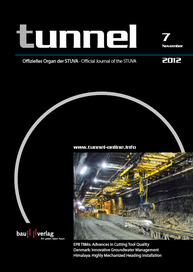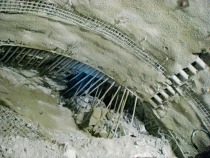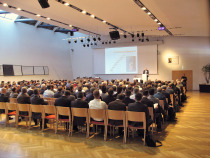Establishing reduced Sintering
Potential for Tunnel Drainage
In the case of tunnels produced by mining means liquids from the carriageway are usually removed separated from accompanying underground water. Sintering of the secondary drainage system for transport tunnels can lead to additional cleaning operations, interruptions in services and follow-up damage if no drainage lines are laid to remedy matters. As a consequence sintering of these drainage systems must be kept as low as possible in order to save maintenance costs.
The chemical-physical composition of the underground water within the bounds of the tunnel represents the main cause for...



